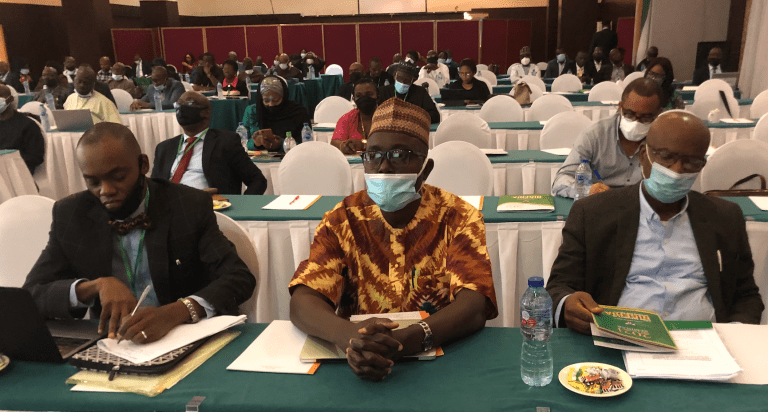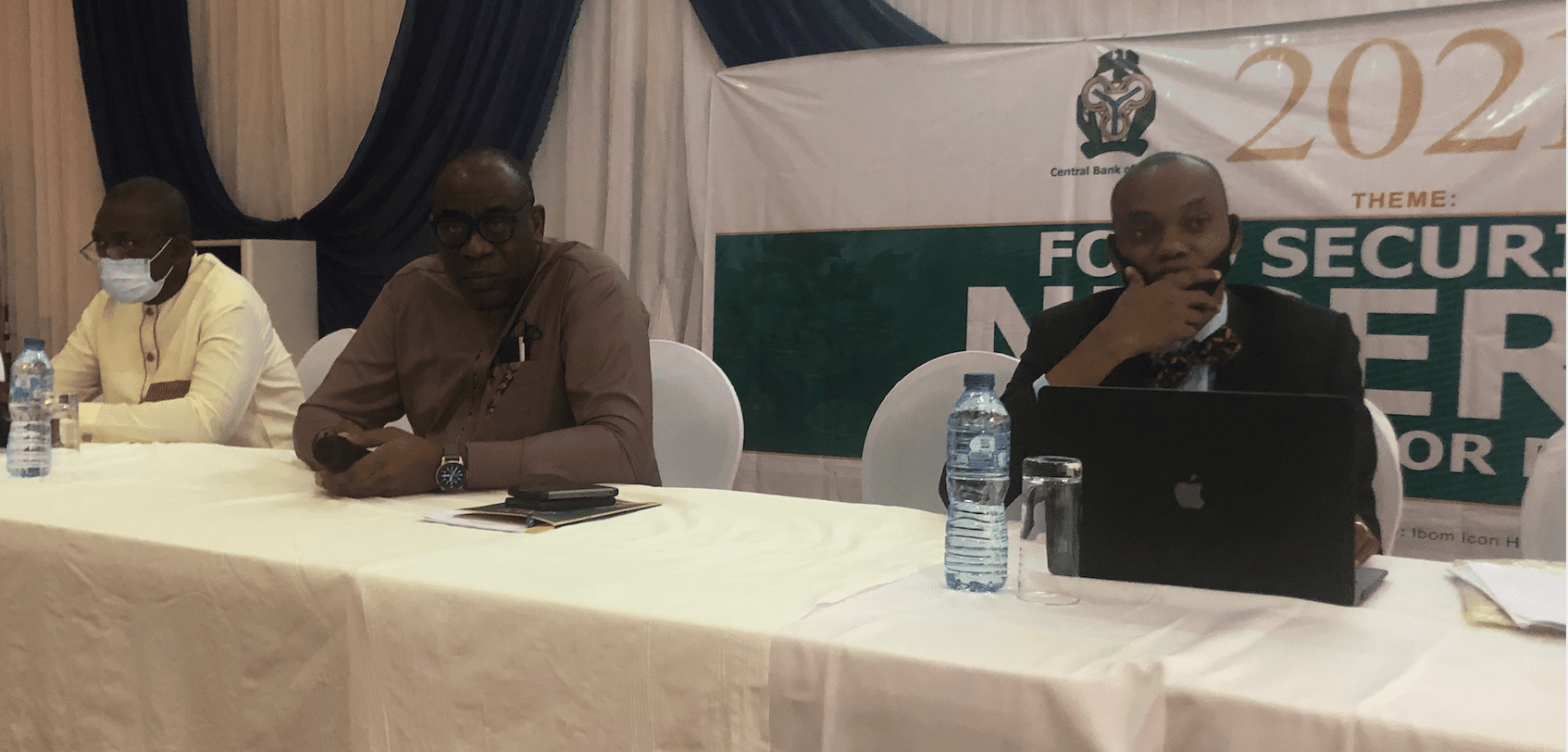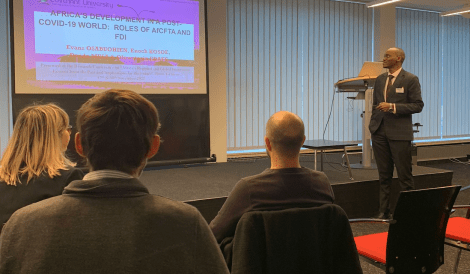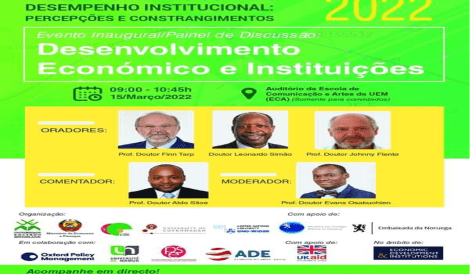Prof. Evans Osabuohien
- Posted on
- No Comments
Prof Evans Osabuohien engages Central Bank Executives on Pathways to Food Security in Nigeria
The Central Bank of Nigeria (CBN) Executive Seminar, Uyo, Akwa Ibom State themed Food Security in Nigeria: Option for Policy that held from 8th to 10th September, 2021 was a huge success. It was a platform for experts and policymakers to deliberate on contemporary issues regarding food security in Nigeria and the way-forward.
Professor Evans Osabuohien was among the invited speakers who made presentations on “Socio-Economic and Environmental Issues: Implications for Food Security in Nigeria” based on a paper he co-authored with one of his mentors, Professor Isaiah Olurinola. In summary, the presentation emphasised that the available evidence shows that over the last four decades, environmental challenges measured diversely (such as pollution, extreme weather, fire disasters, and deforestation, among several others) have been on the increase in Nigeria, which has possible implications for food security. It was noted that the number of undernourished people globally remains significantly high, as it increased from 777 million in 2015 to 815 million in 2018. The rapid population growth has been recognised as one of the main reasons for heightened food insecurity and slow economic growth in African countries, including Nigeria.

The presentation further identified four main dimensions or components of food security: availability, access, utilisation, and stability. These four components should be satisfied simultaneously to meet the objectives of food security, which were explained in detail with emphasis on Nigerian food security concerns and highlighted the influence of socioeconomic and environmental factors in determining food security across the globe.
Also, he discussed some agricultural policies and programmes implemented by the Nigerian government in the past to address the issue of food security in Nigeria, such as the National Accelerated Food Production Programme (NAFPP), Agricultural Development Projects (ADP), Operation Feed the Nation (OFN), Family Support Programme (FSP)/Family Economic Advancement Programme (FEAP), National Fadama Development Project (NFDP), and the Agriculture Promotion Policy (APP, 2016–2020), among others.

It was concluded in the presentation that Nigeria has made many policies towards improving the agricultural sector’s contribution to the economy. However, there is a need to re-hone some of the policies, particularly regarding food security. This calls for a reinvention of innovative approaches through the engagement of all concerned stakeholders to expedite joint actions to redevelop resilient policies and programmes that first reflect the current state and also form a platform for the pursuit of agricultural sector reforms that can effectively address the fundamental challenge of food security in Nigeria as well as provide a source of export. Developing the Nigerian agricultural sector requires a synchronised process to enable the sector to attain developmental heights that can enhance its potential and contribute to broad macroeconomic benefits such as the provision of employment, local tax, and foreign exchange.
The presentation is Online for Free




